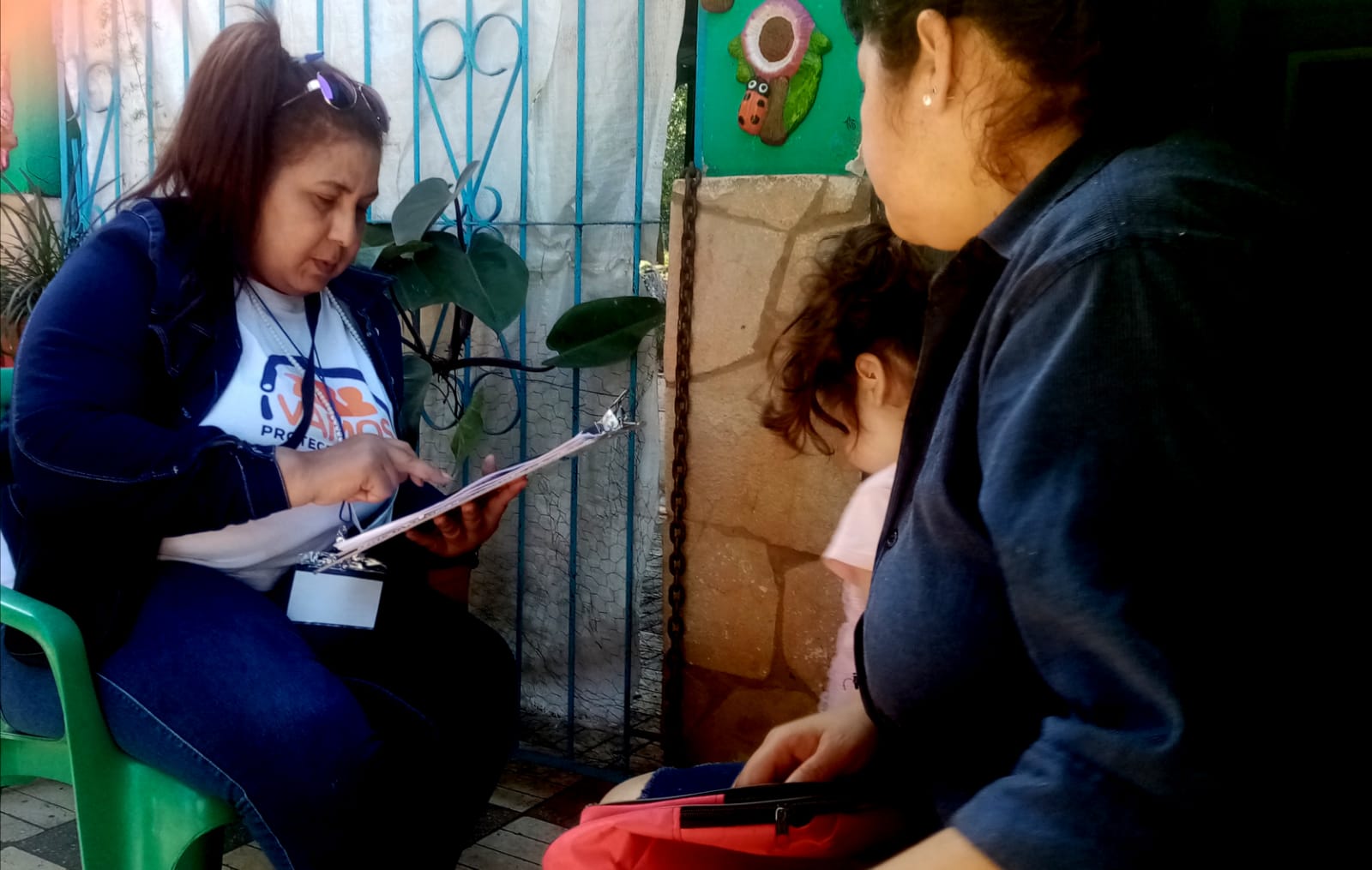Following three years of development and support provided by specialists from 27 government offices, the Paraguay‘s Technical Unit of the Social Cabinet (UTGS) has deployed the social protection card (Ficha Integrada de Protección Social – FIPS) in 10 communities of Villeta District. The data from this tool will help authorities to adopt evidence-based decisions.
During the FIPS kick-off, Carmen Ubaldi, Director of the UTGS said “the information will allow us to ascertain strategies to address existing protection needs“. Rafael Obregón, UNICEF representative in Paraguay pointed out that “reaching out to the community will strengthen the Social Protection System’s implementation“.
Matteo Sirtori, European Union Delegation representative in Paraguay emphasized “FIPS will bring changes in public policy implementation” and Verónica Herken from the ILO in Asunción said “It is very gratifying to be part of this process. FIPS implementation will allow us to have up-to-date data in favour of the people“.
In this first stage, about 2,732 families were surveyed in the following localities: Guazu Corá, Tacuruty, Zanja Pyta, Santa Lucía, Sol Naciente Settlement, Tacuaty, Valle Po’i, Guazú Cora 2 – Itá Yvaté, Senda and 8 de Diciembre settlement. In the medium term, FIPS is expected to be applied across the whole district.
The successful implementation of FIPS in Villeta is another step forward for strengthening the social protection system that coordinates social service delivery and economic inclusion and employment formalization efforts. FIPS will help to collect up-to-date information from families and provide more efficient services to government institutions that are part of the ¡VAMOS! Social Protection System.
This government-led initiative is the first step towards the establishment of a social registry. Thanks to the FIPS, more people will have access to social protection in Paraguay.
This first stage of FIPS implementation was supported by the SP&PFM Project and executed by the ILO and UNICEF, with the support of the European Union in Paraguay and FAO.
Learn more about the SP&PFM in Paraguay: here

